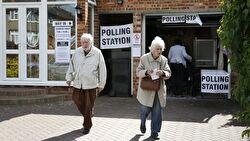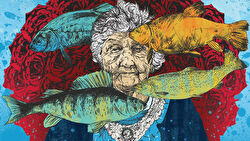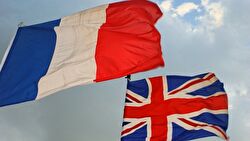
So, farewell
then, David Cameron. No Prime Minister has made a bigger miscalculation since
Anthony Eden thought he could get away with invading Egypt in 1956 to recapture
the Suez Canal. Going for a referendum on the country’s geopolitical state as
if it was a council regulation on dog-fouling was a very big mistake.
The attractions
must have seemed obvious at the time he made the promise, not the least of them
being a hope that it might buy off divisions within his party and prevent defections to UKIP. But instead of lessening divisions, it
has deepened them. His successor will have their work cut out trying to heal
the party.
In his dignified resignation speech David Cameron told us ‘the will of the British people is an instruction that must be delivered.’ How this mess is to be to be cleared up is the first question.
For
nearly fifty years Europe has been the main project of the Foreign Office: any
ambitious diplomat wanted to serve there. Hence Norman Tebbit’s quip that ‘The
job of the ministry of Agriculture of to look after farmers. The job of the
Foreign Office is to look after foreigners.’ It went far deeper than that, of
course. The European Union had entered the bloodstream of the British public
service and there was not a department in Whitehall which did not have an eye
on Brussels.
So the first
problem is to reboot the official mindset. Britain has not negotiated a
bilateral trade agreement for forty years. Perhaps there are some retired civil
servants who can be winkled off their vegetable plots to give advice. As they
shake the soil from their corduroy trousers they had better also contemplate
the depths of small-mindedness they’re likely to encounter when trying to haggle with a
slighted European Union desperate to discourage other nations from following
Britain through the exit.
Appearing among
the largely unrecognizable middle-aged men and women in the so-called ‘family
photo’ at the end of every European gathering has become the dream of politicians
across the continent. But becoming part of that club is a dangerous thing. ‘Jaw-jaw
is better than war-war’ Churchill is supposed to have said at a White House
lunch one day. The problem is that politics requires politicians, and
politicians must have things to do.
The building of a United Europe has been their project for decades. In the process, too many seem to have forgotten the people for whom they were building it.
So during the
referendum campaign party leaders, cabinet minsters, ambassadors, financiers,
tycoons, the Governor of the Bank of England and even Barrack Obama all said the
same thing. And in the end, the voters gave them an enormous raspberry. People
do not like being lectured. But they do rather like a promise.
At no point did
the Remain camp paint a visionary picture of why a United Europe is desirable
to set against the sub-Victorian trading dreams of the Leave campaign. A mature
approach would have been to admit ‘yes, it’s inefficient and not properly
democratic, but the soil of Europe is soaked with blood and it’s surely better that we talk and trade than
that we shout and fight?’ The most passionate advocate of membership turned out
to be the actress Sheila Hancock during a debate we staged on Channel Four the
night before the vote: she wanted to remain inside the European Union for the
sake of her grandchildren and for peace.
By then there were only nine hours until the polls opened and it was much too late.
That evening’s
bear-pit was notable for something else. The various politicians present – the
people we elect in representative democracies to make these decisions for us - were notable by their modest silence. Yet
virtually everyone in the audience wanted to have a rant. Where is the claim
now that people have lost interest in politics?
It is true that membership of political parties has been in decline for decades: there are now probably twice as many vegetarians as there are political party members.
But the result of the referendum discloses the extent of political engagement. What it reveals most is the chasm that now exists between the leaderships of the main parties and the voters.
The political
leaders of any of the main parties have more in common with each other than
they have with many of their foot-soldiers, and the referendum has made that
plain. This is clearly one of those issues (capital punishment is always
said be another) on which the governing
class and the people they purport to represent are entirely at odds.
David Cameron
knew that a referendum was a constitutional nonsense, and that potentially one
day a House of Commons overwhelmingly made up of people who believe in the
European Union would have to pass the laws to leave it.
The results of the referendum have made plain how much the European Union is cordially disliked in Britain. But they have also shown us something quite important about the way our own politics is working. Or not.
This article first appeared in the Sunday Telegraph,
June 26, 2016



